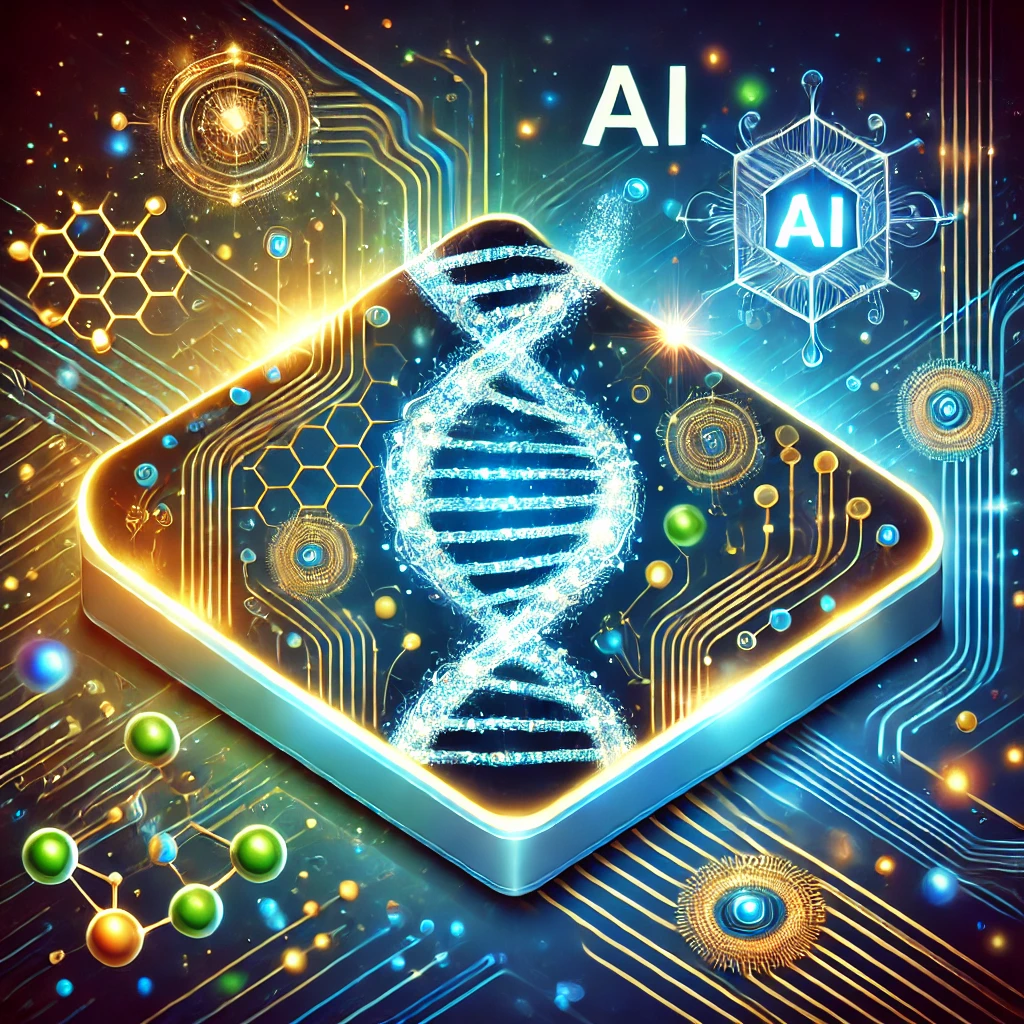Artificial intelligence (AI) has become an indispensable tool in many scientific fields, enabling breakthroughs that were once thought impossible. From genome analysis to the development of quantum algorithms, AI allows scientists to work faster, more accurately, and efficiently.
- Genome Analysis
AI has revolutionized genomics by accelerating analysis processes and opening new frontiers in medicine and biology.
Genetic Research
DNA Decoding: AI algorithms analyze vast amounts of genomic data, identifying mutations that lead to diseases.
Personalized Medicine: AI enables the creation of personalized therapies tailored to each patient’s genetic profile.
CRISPR and AI
AI tools enhance the precision of gene-editing technologies like CRISPR, allowing targeted changes in DNA with reduced risk of side effects.
Evolutionary Studies
AI helps analyze evolutionary changes in genomes, revealing new insights into biological diversity.
- Discovery of New Materials and Chemical Compounds
AI is transforming material science and chemistry by aiding in the discovery of new compounds and optimizing existing materials.
Generative Models in Chemistry
Identifying New Substances: Algorithms like generative adversarial networks (GANs) predict the properties of materials before they are synthesized in a lab.
Drug Discovery: AI analyzes millions of potential molecular combinations, accelerating the development of new medicines.
New Materials for Energy
Solar Panels: AI contributes to designing more efficient semiconductors for energy conversion.
Superconductors: By analyzing data, AI speeds up the search for materials capable of transmitting electricity without loss.
Eco-Friendly Materials
AI is used to develop materials that are safe for the environment and reduce carbon footprints.
- Development of Quantum Algorithms
In quantum computing, AI is a key element that helps solve complex mathematical problems and model physical phenomena.
Optimizing Quantum Computing
AI helps find optimal solutions for quantum problems, such as:
Fast database searches.
Solving optimization problems in logistics and energy.
Modeling Quantum Systems
AI predicts the behavior of quantum particles, which is critical for developing new technologies in cryptography and material science.
Synthesizing Quantum Algorithms
AI algorithms create new quantum models that can be applied to solve problems in chemistry, physics, and other sciences.
Real-World Examples of AI-Driven Scientific Discoveries
- DeepMind’s AlphaFold: A breakthrough in predicting protein structures, aiding in disease research and drug development.
- IBM Watson: Used in pharmaceuticals to analyze chemical compounds and accelerate the discovery of new drugs.
- COVID-19 Vaccine Development: AI assisted in analyzing the virus structure and predicting its mutations.
Artificial intelligence is becoming a catalyst for scientific discoveries, accelerating progress across various fields. Genome analysis, the creation of new materials, and the development of quantum algorithms are just the beginning of the revolution AI brings to the world of science.

